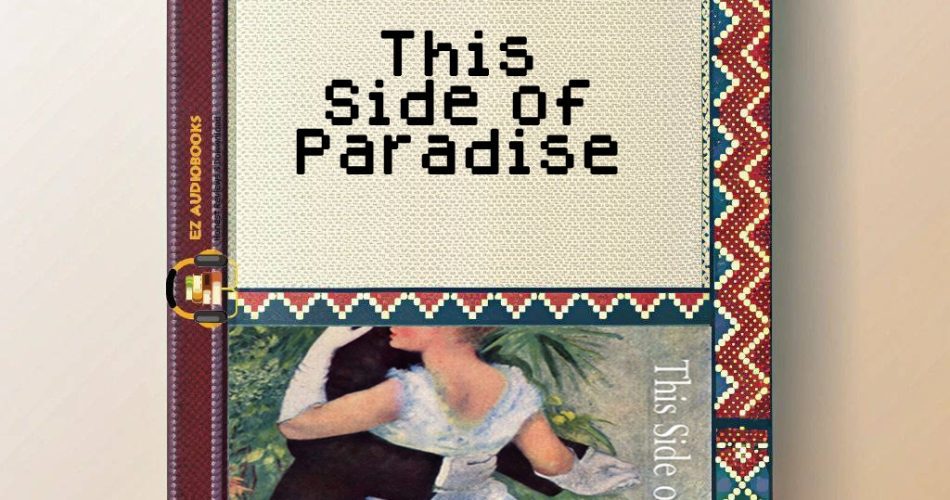Audiobook Sample
Listen to the sample to experience the story.
Please wait while we verify your browser...
- Title: This Side of Paradise
- Author: F. Scott Fitzgerald
- Narrator: LibriVox Volunteers
- Length: 08:57:39
- Version: Abridged
- Release Date: 01/01/2016
- Publisher: LibriVox
- Genre: Fiction & Literature, Classics
- ISBN13: SABLIB9783431
There’s something deliciously meta about experiencing Fitzgerald’s debut novel – a work that captured the seismic cultural shifts of the 1920s – through the distinctly 21st century medium of crowd-sourced audiobooks. As someone who analyzes how storytelling formats shape meaning (remember my five-way ‘Project Hail Mary’ experiment?), I found this LibriVox edition of “This Side of Paradise” particularly fascinating as an audio artifact.
“The Audio Experience:”
The volunteer narration creates an unexpected time capsule effect – multiple voices (some polished, some charmingly amateurish) collectively channeling Fitzgerald’s prose. Unlike my experience with ‘The Seven Husbands of Evelyn Hugo’ where a single narrator’s character choices unlocked new dimensions, here the rotating cast mirrors the novel’s own fragmented structure. Listen for the Princeton chapters where different readers handle Amory’s collegiate adventures – the shifts in tone accidentally reinforce his evolving persona.
“Cultural Resonance Then and Now:”
Fitzgerald’s portrait of disillusioned youth hits differently in our age of TikTok existentialism. When Amory muses “‘I’m a romantic; a sentimental person thinks things will last, a romantic person hopes against hope that they won’t'”, I had to pause the audio – that’s essentially the thesis statement of every viral Gen-Z “‘late capitalism is crushing my soul'” post I analyze on BookTok. The novel’s exploration of performative identity (Amory constantly reinventing himself) feels eerily contemporary in our curated social media era.
“Standout Audio Moments:”
1. The “‘Young Irony'” chapter benefits tremendously from audio delivery – hearing the affected, world-weary tone in amateur narrators’ voices makes Fitzgerald’s satire of pretentious youth even sharper.
2. Rosalind’s love letters gain intimacy when whispered through laptop microphones – you can practically hear the narrator leaning closer to their recording device.
3. The abrupt ending (which famously made Zelda Sayre agree to marry Fitzgerald) lands with more emotional impact when heard rather than read – the unfinished quality of the last sentences lingers in your headphones.
“Critical Perspective:”
While the audio quality varies (this is free LibriVox, not a studio production), that roughness accidentally serves the material. The occasional background noise and inconsistent volume become aural metaphors for the Jazz Age’s chaotic energy. That said, listeners wanting polished narration might prefer a paid version – though they’d miss the communal charm of this edition.
“Why This Matters Now:”
In my work analyzing digital storytelling, I constantly see how platforms shape narratives. Hearing “This Side of Paradise” through volunteer voices highlights how Fitzgerald’s themes – the fluidity of identity, the performance of sophistication – are magnified in our participatory media age. It’s like hearing the literary ancestor of today’s collaborative online fandoms.
Stay curious, keep rewiring classic stories for the digital age – and slide into my DMs with your hottest takes on Jazz Age literature! #AudiobookAlchemy
Sophie Bennett

